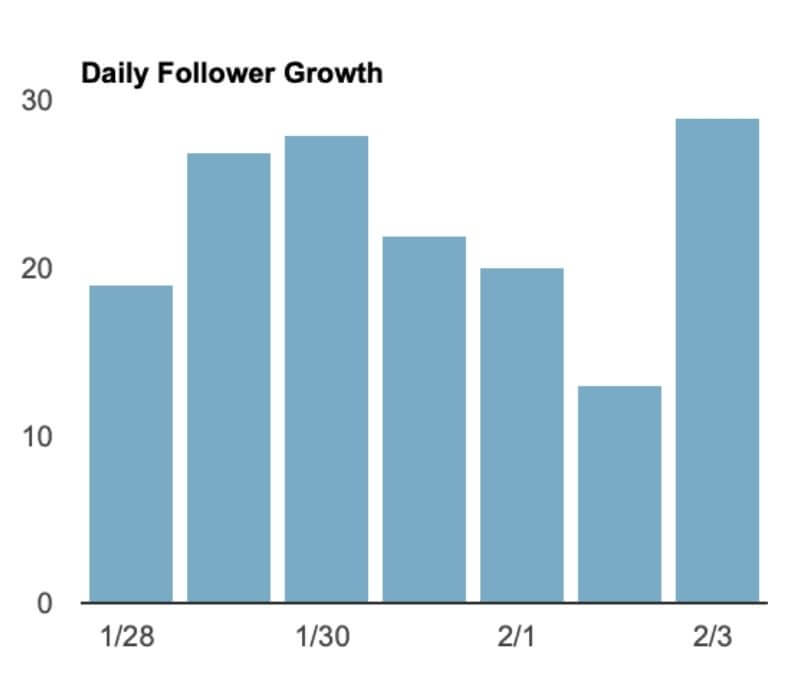
Level Up Your Marvel Rivals Gameplay
Capture your epic wins, clutch moments, and even hilarious fails with Eklipse. Easily create and share highlight reels with your friends—even if you're not streaming!
Learn MoreSocial media metrics are important data points that help track the performance of your social channels, content, strategy, and its impact on your goal as a content creator. Measuring social media metrics goes beyond just social, as it provides valuable business intelligence that informs brand health, competitive standing, and performance benchmarks. Here are ten types of social media metrics that marketers are prioritizing more in 2023.
1. Follower growth and audience size

Follower growth is an important metric that indicates the health of your social channels and the awareness you’re building. It’s crucial to adjust your strategy if your follower growth has halted or declined.
2. Customer satisfaction and feedback
Social media provides valuable insights into what is and isn’t working with your content, customer care, brand, and products. Monitoring metrics like reply time, total response volume, customer satisfaction score (CSAT), and comments can help improve the customer experience.
3. Awareness metrics
Awareness metrics help connect your social media strategy to brand awareness. Tracking metrics like impressions, reach, and video views can provide insights into the visibility and popularity of your content.
4. Customer retention and loyalty through
Metrics like net promoter score (NPS), social commerce metrics, and reviews help measure customer loyalty and retention. Responding to reviews and tracking returning visitors and buyers can contribute to customer satisfaction and loyalty.
5. Social media referral traffic and website visits

Tracking social media referral traffic and website visits helps demonstrate the impact of social on your business and ROI. Using UTM tracking and monitoring website traffic can provide valuable insights into the effectiveness of your social media efforts.
6. Brand health metrics
Metrics like audience sentiment, brand mentions, and share of voice shed light on the health of your brand and organization. They provide valuable insights into how people feel about your brand, customer feedback, and market shifts.
7. Conversion rates
Conversion rate measures how well your social ad or campaign convinces people to take a desired action. Tracking conversion rate and conversions can help optimize your ads and campaigns for better engagement and ROI.
8. Social media engagement metrics
Engagement metrics indicate how actively involved your audience is with your content. Tracking metrics like post engagement rate, likes, comments, shares, and video completion rate can help understand audience interaction and content appeal.
9. Click-through rates (CTR)
Click-through rate measures how effective your ads are in convincing people to click on your content. It’s important to monitor CTR to optimize your ad creative and spend.
10. Paid metrics
Paid metrics include Cost per click (CPC) or cost per impression (CPM) for social media advertising. Tracking metrics like cost per click and web conversions helps ensure you’re getting the most out of your paid social efforts. Calculating the return on ad spend (ROAS) helps determine the financial ROI of your ad campaigns.
Conclusion
In summary, analyzing social media metrics is vital to gauge how your social strategy influences your business objectives. By honing in on pertinent metrics and employing suitable tools, you can make informed choices, enhance social efforts, and showcase social value to your company.
🎮 Play. Clip. Share.
You don’t need to be a streamer to create amazing gaming clips.
Let Eklipse AI auto-detect your best moments and turn them into epic highlights!
Limited free clips available. Don't miss out!
